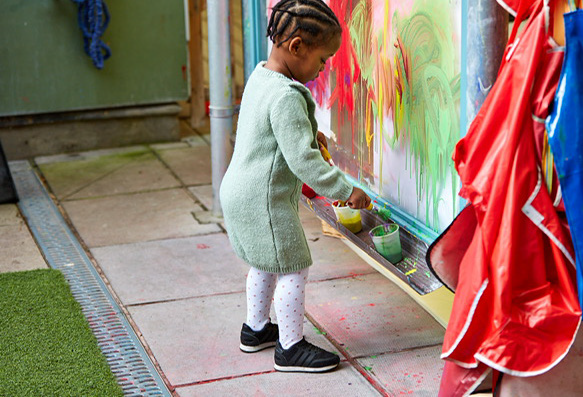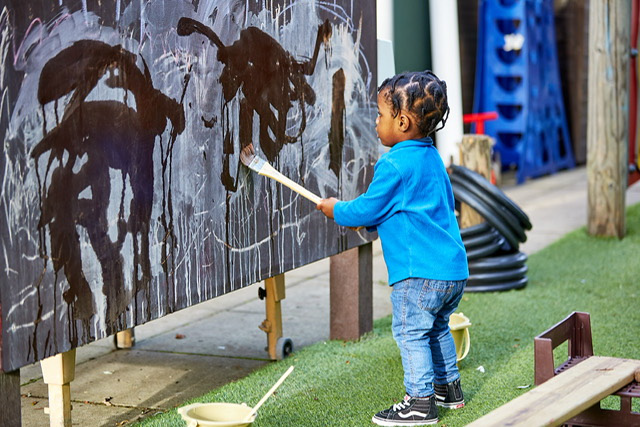Physical development
Active learning is important at North Islington Nursery School. Staff consider how children can develop important physical skills as an integrated part of learning. Many opportunities are provided for children to develop gross motor skills whilst they play and learn both inside and outside. Resources to practice stepping, walking, climbing, jumping, swinging and running are on hand daily and are not restricted to certain times of the day. Often other teaching is incorporated into physical play such as turn taking in ring and running games or the use of positional language is developed during play on an obstacle course.
Appropriate challenge is provided and staff encourage children to have a go, being on hand to help if needed. An appropriate level of risk can be exhilarating and confidence boosting for children. It also develops perseverance and a desire to achieve.
Lots of opportunities to develop upper arm strength is on offer in the toddler and nursery class.
Large scale painting on an easel, pulling and pushing equipment, transporting of big blocks and crates, digging with spades and opportunities to climb and swing develop muscles in children’s arms that will be important for children when they start to write. Whilst engaging in these learning opportunities, children are of course learning how to work alongside and together with other children. Negotiating space is important and taking turns is vital when wanting to use equipment. Staff encourage children to develop spatial awareness and to pay attention to those around them. Modelling language to negotiate turn taking is helpful and resources such as a sand timer or a list of names enables children to take charge of this turn taking.

Fine motor development is also an integral part of every day nursery life. Each classroom provides numerous opportunities for children to develop dexterity and strength using the small muscles in their hands. Play dough and other sensory play activities allow children to pinch, pat, roll, squeeze and form malleable resources and the use of dried materials such as salt and sand can be used to pour, scoop and fill whilst developing hand eye co-ordination skills.
We encourage children to try to put on their own clothes and to zip/button up their own coats. With younger children we will use the chain method – the adult starts off the doing of the zip and the child continues until the day that they can do it all for themselves.
Mark making opportunities are seen across the school – younger babies make marks with finger paints and cornflour, toddlers begin to enjoy mark making on a large scale – painting with water on the walls and floors outside and then our older children may begin to enjoy mark making with paint brushes, pens, pencils and chalks on the floor. Clipboards, easels and a chalk boards are evident inside and outside all of the classrooms and readily provide the opportunity to make marks as part of intended play.

